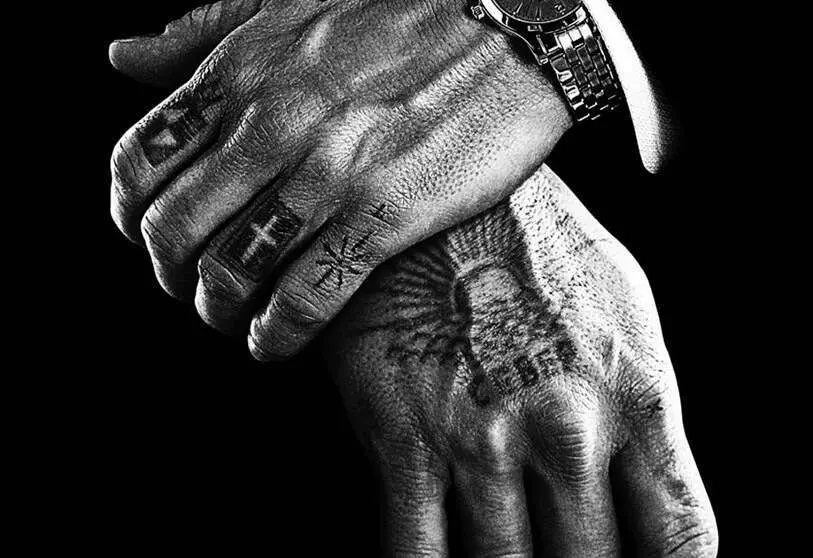Mafias, the other superpower

While the withdrawal of NATO forces from Afghanistan has turned the geopolitics of Asia, Europe and America upside down, another mutation is also taking shape on a global scale, more silent but terribly effective and dangerous: the relentless expansion of the mafias, their constant infiltration of the powers and institutions of states, and the poisoning of the legal circuits of the economy, increasingly and irreversibly contaminated by the laundering of dirty money.
This summer, the French daily Le Monde has treated us to six chapters of a gripping weekly series on the "Geopolitics of the Mafia", one of the most chilling summaries of the unstoppable advance of this long, multi-tentacled beast. So much so that experts such as the Italian Roberto Saviano, forced to live in anonymity and guarded by a dense security shell, or the Russian Alexei Navalny, survivor of several assassination attempts and now serving successive prison sentences in Putin's prisons, are demanding that the major international political summits deal with one of the problems they consider to be the most serious for society on a planetary scale.
The common denominator of the world's different mafias, according to the French newspaper's investigation, is the growing interaction of organised crime with the powers of the state, which makes it increasingly difficult, if not impossible, to fight against powerful structures, which have no qualms about bloodshed and ruthlessly eliminating anyone who does not agree to make a pact, that is to say, to facilitate their activities. The maxim "silver or lead", which the Colombian drug trafficker Escobar summed up as the only alternatives in dealing with him and his mafia, has become increasingly common.
The case of Mexico is sadly illustrative in this respect: more than 90 people linked to the last 2020-2021 electoral process were assassinated, including 28 candidates for different public offices. Thus, the enormous financial strength of the 15 Mexican drug cartels shapes the political landscape throughout the country thanks to their colossal means. As Le Monde's own editorial states, "the state is infiltrated, to the point that in some regions there is talk of co-governance between the state and the cartels".
Drug trafficking, illegal arms sales, counterfeiting and human trafficking are the most profitable businesses in the world, according to figures provided by the UN Office on Drugs and Crime. If in 2010 the $900 billion they moved represented 1.5% of world GDP and 7% of global merchandise exports, in 2015 the turnover had already risen to $2 trillion a year and 3.6% of world GDP, or four times the GDP of Argentina or ten times that of Colombia. There are no more recent official figures, but all indications are that turnover is multiplying almost exponentially.
In geopolitical terms, the influence of organised crime in Russia and the entire former Soviet territory is growing and becoming more evident. The mafias born in the Caucasus and the Balkans, once they have dominated their own territory, aspire to expand. Russian, Georgian, Albanian, Serbian and Montenegrin criminals have, since the fall of communism, moved from petty crime to become major players in international organised crime. In the case of Serbia and Montenegro specifically, criminal operations are planned in collusion with the secret services, which ultimately amounts to doing so with the complicity to a greater or lesser degree of politicians.
If the vacuum left by the communist regimes has given rise to the strong irruption of the mafias, in the case of Hong Kong it would be the reverse: the retreat of democracy and the growing imposition of Beijing's power has increased the influence of the so-called triads, whose great capacity for adaptation since colonial times is now serving to make Hong Kong's atmosphere increasingly unbreathable.
As for Italy, the birthplace of the genuine Mafia, the Sicilian Mafia, it continues to be the most powerful criminal organisation, in this case the Calabrian Ndrangheta, much more influential than the Camorra, Cosa Nostra or Sacra Corona Unita, and already considered the most dangerous organised crime structure in the world.
The huge profits of the mafias have also sought new ways to bring this enormous amount of money into the legal economy. While real estate investment has traditionally been the most common channel for this torrent, tax pressure has led to a great diversification towards all kinds of businesses, be they distribution chains or computer services. The creation of virtual currencies thus contributes to money laundering, to the extent that more than a few criminal organisations are already imposing bitcoin, for example, to the detriment of cash. It is clear that this irruption is distorting the global economy, increasing the vulnerability of countries, financial sectors and companies of all kinds.
In this geopolitics of organised crime, another no less obvious conclusion is that, in such an infiltrated and contaminated global world, it will be increasingly difficult to fight this scourge. A task too arduous to undertake without a real conviction and will to eradicate it. In addition to the superpowers present, China and the United States, organised crime is fast becoming the third in line.

